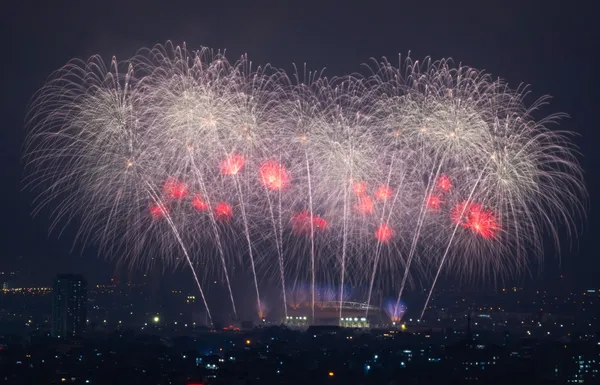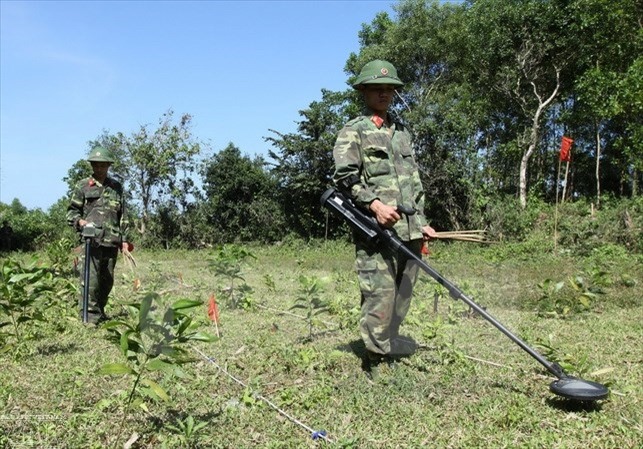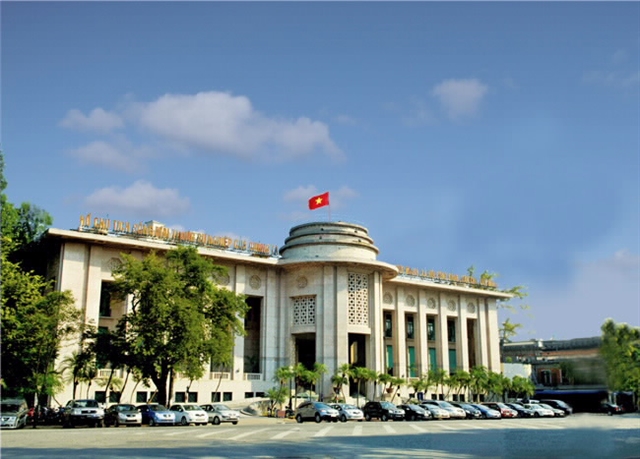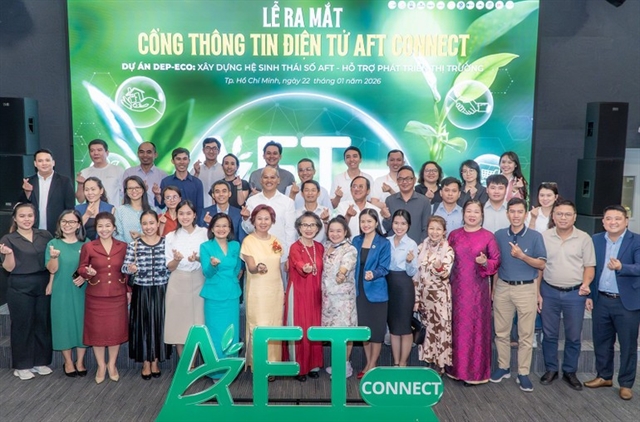 Society
Society

Representatives from 18 grassroots human security projects signed contracts to receive grants from the Embassy of Japan in Hà Nội on Tuesday.
 |
| Army police search for bombs and explosive remnants in central Quảng Trị Province. — VNA/VNS Photo Trọng Đức |
HÀ NỘI — Representatives from 18 grassroots human security projects signed contracts to receive grants from the Embassy of Japan in Hà Nội on Tuesday.
The signing ceremony took place at the Japanese Ambassador’s residence.
A total of some US$2 million will be provided for the projects within this month.
The projects aim to develop infrastructure in the fields of education, health and irrigation in 15 provinces, as well as improving the quality of education for children of ethnic minorities.
One of them aims to reduce pollution from explosive objects left in the country after the wars in central Thừa Thiên-Huế Province’s A Lưới District, which is led by the Danish Demining Group (DDG).
Speaking at the signing ceremony, Japanese Ambassador to Việt Nam Umeda Kunio acknowledged the challenges that the country is facing despite its economic development and rapid urbanisation process.
“Several communities are lagging behind, and a lot of Vietnamese are yet to enjoy a comprehensive education and medical benefits,” he said.
“The grassroots projects that we decide to support today are those that aim to focus more on the disadvantaged people in different localities, he said. “They play an important role in the balanced development of the country,” he added.
The ambassador hoped he would be invited to visit the projects’ constructions once they are completed, he said.
Nguyễn Bá Khuyên, chairman of Phú Thọ Province’s Tây Sơn District, represented the project owners to express their gratitude towards the embassy and their commitments to completing the projects in time.
He hoped that the embassy would continue assisting the country in improving issues in waste management, environmental pollution and climate change, he said.
In the period 1996 to 2016, the Japanese Government’s Grant Assistance for Grassroots Human Security Projects (GGP) supported 169 projects in 26 southern provinces, with a total grant value of $13.5 million. — VNS




